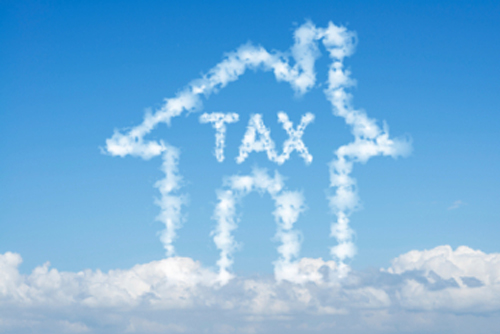This week, I received a letter from HMRC asking me to provide them with details of all our Landlords and the rents received from their tenants for the tax year ending...
This week, I received a letter from HMRC asking me to provide them with details of all our Landlords and the rents received from their tenants for the tax year ending 5th April 2016. This is so that they can cross check the amounts with the returns that they receive from Landlords for the same period. So, it’s time to start getting out all of your paperwork in order to get those returns into the HMRC in time for the 5th October deadline. Many Landlords, and would be Landlords, tell me that they find taxation confusing (and this is the case even for those who have been letting property for years and years) but tax for Landlords need not be a minefield…. Here’s a brief guide for those letting properties privately:-
- If you are letting any residential property you should inform the HMRC. And this is the case even if the let is to a family member and even if no rent is received. If the rental income is low then it will just be a case of a quick call to the Self Assessment Helpline (0300 200 3310). Where you receive rental profit over £2500 and/or rental income over £10,000 per year, you will need to register for Self Assessment.
- Rental income must be included in your overall income when paying income tax. The good news is that it is your net rental income or the ‘profit’ you make that is taxable. The ‘profit’ is calculated by deducting any ‘allowable expenses’ from the rent that you have received.
- What are allowable expenses? These are any expenses incurred in the running of your lettings business and currently includes things like letting agents fees, mortgage interest, insurances, property repairs (for a full list see https://www.gov.uk/renting-out-a-property/paying-tax) but excludes any capital expenditure.
Any expenses must be wholly incurred so, the expenses declared on your tax return would need to reflect only those items incurred whilst the property is let or during a void. Any expenses incurred whilst you are still occupying the property will need to be pro rata’d to reflect this as would any expenses not wholly attributable to the business (for example mobile phone bills not used wholly for your lettings business)
- In the latest budget, the Chancellor announced some restrictions to allowable expenses:-
- Mortgage Interest. This is currently an allowable expense but will start to be phased out from April 2017 – April 2020 – definitely something to bear in mind in your financial planning, especially if you are a higher rate tax payer as this is likely to have a big impact on your bottom line in the future. (http://www.theguardian.com/money/2015/jul/11/buy-to-let-budget-tax-profits-mortgage)
- Furnished wear and tear allowance. For any lets until April 2016 you can claim either 10% of the net rent as a ‘wear and tear allowance’ for furniture and equipment you provide with a furnished residential letting or the cost to replace items. For any lets from April 2016 landlords will only be able to claim for the replacement of furnishings.
- What counts as capital expenditure? This is any expense that will make an overall improvement to the property (things like loft extensions, conservatories and, in almost all circumstances, a new kitchen or bathroom). These expenses are not classed as an allowable expense. The good news is that costs like these can often be offset against any capital gain on the property when you come to sell so make sure you keep detailed records of these. (See https://www.gov.uk/tax-sell-property/work-out-your-gain for more information)
- Dealing with a portfolio of properties. Losses on individual properties can be offset against other properties in your portfolio. You can also deduct costs from a rental property where you aren’t receiving rent (eg: during a void or where works are being carried out) against other properties in your portfolio. However, bear in mind that UK properties are treated separately to any overseas properties you may own so you can’t deduct costs from a UK property against an overseas property or vice versa. An overall loss can also be taken forward to be offset against future profits.
- Living overseas. Sadly, moving overseas doesn’t mean you don’t need to pay income tax on your UK rental property. You are still subject to all the same tax legislation. The only difference is that income tax is deducted at source by your letting agent or your Tenant unless you are registered with the HMRC under the Non Resident Landlord Scheme. (see https://www.gov.uk/tax-uk-income-live-abroad/rent for more information or give me a call to discuss further)
- Consider forming a limited company. There has been some speculation in the press that this could be an option to help ease the tax burden especially if you own multiple rental properties. Although don’t forget the capital gains liability will be greater when you come to sell and you will be subject to corporation tax. http://www.telegraph.co.uk/finance/property/11731646/Buy-to-let-How-landlords-can-cut-their-shock-new-tax-bill.html)
https://www.gov.uk/corporation-tax/overview
- Remember the tax deadlines. The tax year runs from 6th April until the 5th April each year and you must register with the HMRC no later than 5th October after the end of the tax year that you are paying tax for. Then make sure you get your return in by the 31st October for paper returns and the 31st January for online returns. There are exceptions to these dates depending on your personal circumstances. Contact the Self Assessment Helpline (0300 200 3310) if you are in doubt.
- If you haven’t already declared rental income for previous years – consider declaring it retrospectively via the HMRC’s Let Property Campaign gov.uk/let-property-campaign
- The HMRC have produced some helpful online training for landlords here hmrc.gov.uk/courses/syob2/letting/index.htm
If you need any further clarification on anything or you would like to discuss further I’d love to hear from you on 01489 579911 or emma@robinsonreade.co.uk.



 by
by 

 by
by 
Share this with
Email
Facebook
Messenger
Twitter
Pinterest
LinkedIn
Copy this link